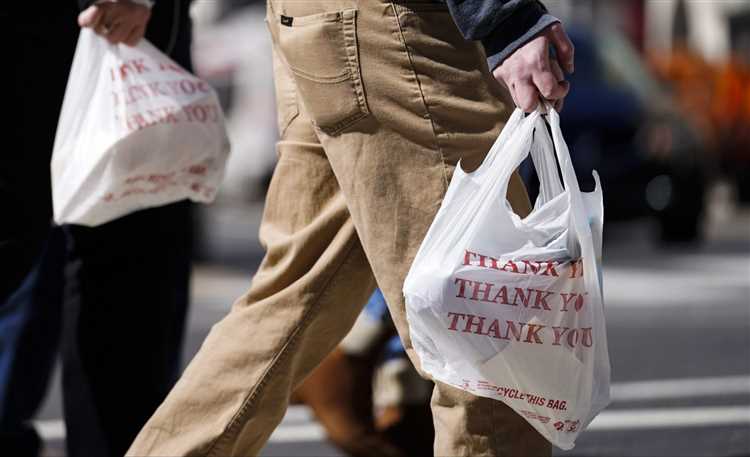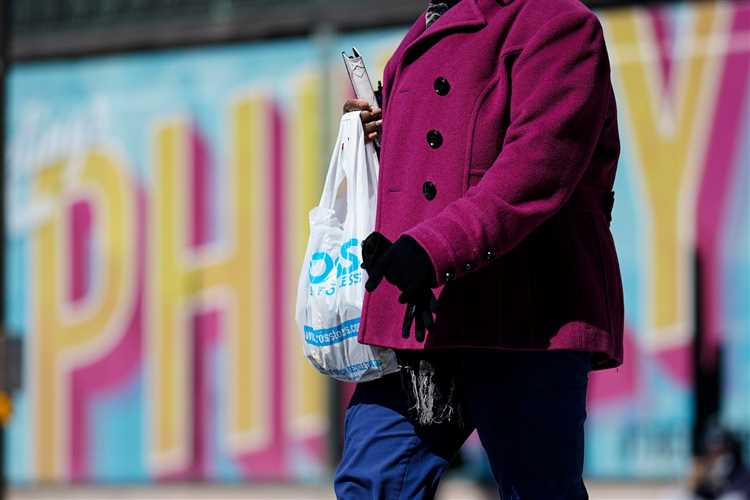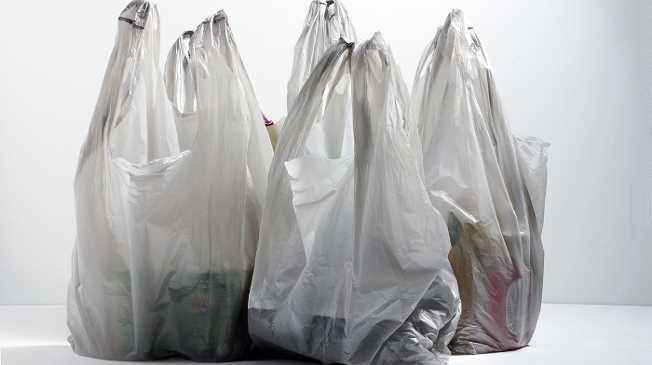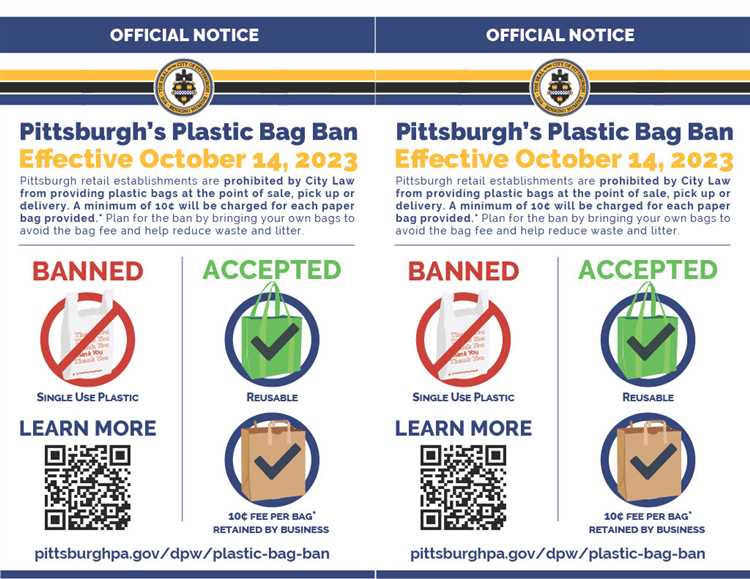
In an effort to reduce plastic waste and protect the environment, Pennsylvania has recently implemented a plastic bag ban. This ban has sparked debates and raised questions about its impact on businesses and consumers. Here is everything you need to know about the plastic bag ban in Pennsylvania.
The plastic bag ban in Pennsylvania prohibits the distribution of single-use plastic bags by most stores, including grocery stores, convenience stores, and retail establishments. However, there are exceptions to the ban, such as bags used for fruits, vegetables, or bulk items, as well as bags used for prescription medication or newspapers.
Under the new law, consumers are encouraged to bring their own reusable bags when shopping. This not only helps reduce plastic waste but also saves money in the long run, as many stores charge a fee for paper bags as an alternative to plastic.
While the ban aims to protect the environment, it has raised concerns among some businesses and consumers. Critics argue that the ban will lead to job losses in the plastic bag manufacturing industry and inconvenience for consumers who rely on plastic bags for various purposes. However, supporters of the ban emphasize the importance of prioritizing the health of our planet and finding sustainable alternatives to plastic bags.
Ultimately, the plastic bag ban in Pennsylvania is a step towards a greener future. It encourages individuals to be more aware of their consumption habits and make conscious choices that positively impact the environment. By embracing reusable bags and reducing our reliance on single-use plastics, we can help create a cleaner and healthier state for generations to come.
- Overview of the Plastic Bag Ban in Pennsylvania
- Key points to know about the plastic bag ban:
- Understanding the Plastic Bag Ban
- What is the Plastic Bag Ban?
- Why is the Plastic Bag Ban Important?
- Impact on Businesses and Consumers
- Environmental Benefits of the Ban
- Alternatives to Plastic Bags
- Implementation and Enforcement
- State Government Role
- Local Municipality Role
- Questions and answers:
- What is the plastic bag ban in Pennsylvania?
- When did the plastic bag ban in Pennsylvania come into effect?
- Why was the plastic bag ban in Pennsylvania implemented?
- How will the plastic bag ban in Pennsylvania affect retailers?
- Are there any exceptions to the plastic bag ban in Pennsylvania?
Overview of the Plastic Bag Ban in Pennsylvania
Pennsylvania recently implemented a statewide ban on single-use plastic bags, joining a growing list of states and cities taking steps to reduce plastic waste and protect the environment. The ban on plastic bags went into effect on July 1, 2021, and applies to all retailers across the state.
This ban is part of a larger effort to encourage the use of reusable bags and reduce the consumption of single-use plastics. The aim is to reduce pollution, preserve natural resources, and promote a more sustainable future.
Key points to know about the plastic bag ban:
- Prohibition: The ban prohibits all retailers in Pennsylvania from providing single-use plastic bags to customers at the checkout. This includes grocery stores, convenience stores, and other retail establishments.
- Alternatives: Retailers are encouraged to offer reusable bags or provide options like paper bags, but they may charge a fee for these alternatives.
- Exemptions: The ban does not apply to bags used for bulk items, perishable foods, or prescriptions. It also does not apply to bags used for newspapers, dry cleaning, or other similar products.
- Education and Outreach: The state is undertaking efforts to educate consumers and retailers about the ban and the importance of using reusable bags. This includes providing resources and information on alternative options.
- Enforcement: Penalties may be imposed on retailers who fail to comply with the ban. However, the focus is on education and voluntary compliance during the initial phase of implementation.
The plastic bag ban in Pennsylvania is a significant step towards reducing plastic waste and promoting sustainable practices. By encouraging the use of reusable bags and reducing reliance on single-use plastics, the state aims to protect the environment and create a cleaner future for Pennsylvania.
Understanding the Plastic Bag Ban
In an effort to reduce plastic waste and promote environmental sustainability, Pennsylvania is implementing a ban on single-use plastic bags. This ban aims to encourage consumers to adopt more eco-friendly alternatives and reduce the reliance on plastic bags.
What is the Plastic Bag Ban?
The plastic bag ban is a statewide policy that prohibits the distribution of single-use plastic bags by retailers. Retailers are now required to offer more sustainable options, such as reusable bags or paper bags, for customers to carry their purchases.
Why is the Plastic Bag Ban Important?
The plastic bag ban is important because it helps to reduce plastic pollution and protect the environment. Single-use plastic bags are a significant contributor to plastic waste and often end up in landfills or as litter in waterways, causing harm to wildlife and ecosystems. By implementing this ban, Pennsylvania is taking a proactive step towards a cleaner and greener future.
| Benefits of the Plastic Bag Ban | Challenges |
|---|---|
|
|
While there may be challenges associated with the plastic bag ban, the benefits for the environment and future generations outweigh them. As consumers, we can support this ban by opting for reusable bags or other sustainable options when shopping and encouraging others to do the same. Together, we can make a positive impact on our planet.
Impact on Businesses and Consumers

The plastic bag ban in Pennsylvania will have a significant impact on both businesses and consumers. Businesses that rely on plastic bags for packaging and transportation will need to find alternative solutions. This may involve investing in more sustainable options such as paper or reusable bags.
While this transition may initially involve some costs for businesses, it also presents an opportunity for them to demonstrate their commitment to environmental sustainability. By offering reusable bags or encouraging customers to bring their own, businesses can align themselves with the growing trend of eco-conscious consumers.
For consumers, the plastic bag ban will require a change in behavior. They will need to remember to bring reusable bags with them when shopping or opt for alternative packaging options. This may take some adjustment but can significantly reduce plastic waste and have a positive environmental impact.
Consumer education will be key in ensuring a successful transition. Businesses can help by providing information on the plastic bag ban, offering incentives for using reusable bags, and assisting customers in understanding the environmental benefits of the ban.
| Impact on Businesses | Impact on Consumers |
|---|---|
| Investing in alternative packaging solutions | Reminding to bring reusable bags when shopping |
| Showcasing commitment to sustainability | Adapting to alternative packaging options |
| Aligning with eco-conscious consumers | Reducing plastic waste |
| Providing consumer education | Understanding environmental benefits |
Environmental Benefits of the Ban

The plastic bag ban in Pennsylvania has several significant environmental benefits. One of the main advantages is the reduction of plastic pollution in our environment. Plastic bags are one of the most common types of litter found in our streets, parks, and water bodies. They are not biodegradable and can persist in the environment for hundreds of years, causing harm to wildlife.
By banning plastic bags, Pennsylvania can significantly decrease the amount of plastic waste that ends up in landfills and natural habitats. This reduction in plastic pollution will help protect our ecosystems and preserve biodiversity. It will also prevent the release of harmful chemicals and microplastics into the environment, which can have long-term implications for human health.
Another significant environmental benefit of the ban is the conservation of non-renewable resources. Plastic bags are made from fossil fuels, mainly petroleum and natural gas. By reducing their consumption, we can decrease our reliance on these limited resources and promote a more sustainable and circular economy.
Furthermore, the ban encourages the adoption of alternative and eco-friendly packaging materials. Businesses and consumers will be encouraged to use reusable bags, paper bags, or compostable bags instead of single-use plastic bags. These alternatives have a lower environmental impact, as they are often made from renewable resources and can be recycled or composted.
Overall, the plastic bag ban in Pennsylvania brings several environmental benefits, including the reduction of plastic pollution, conservation of resources, and promotion of eco-friendly alternatives. It is a crucial step towards a cleaner and more sustainable future for our state.
Alternatives to Plastic Bags
With the ban on plastic bags in Pennsylvania, it’s important to find alternative options for carrying groceries and other items. Here are a few eco-friendly alternatives to consider:
Reusable Shopping Bags:
Investing in a few reusable shopping bags is a great way to reduce your plastic waste. These bags are made from durable materials like cotton or canvas, and they can be used multiple times. Keep a few in your car or near your front door so you always have them handy.
Paper Bags:
If you forget your reusable bags or need an extra option, consider using paper bags instead. While they may not be as durable as plastic or reusable bags, paper bags can be recycled or composted, making them a better option for the environment.
Cartons and Boxes:
If you’re just grabbing a few items or don’t need a bag, consider using cartons or boxes to carry your purchases. Many grocery stores have these available near the checkout, and they can be reused or recycled for future trips to the store.
Mesh Produce Bags:
When it comes to fruits and vegetables, consider using mesh produce bags instead of plastic bags. These breathable bags allow your produce to stay fresh and can be reused multiple times. Plus, they can easily be washed and dried to keep them clean and sanitary.
Remember, the goal is to reduce and eliminate single-use plastic bags. By making small changes and using these alternative options, we can help protect the environment and create a more sustainable future.
Implementation and Enforcement
The implementation of the plastic bag ban in Pennsylvania will require coordination between the state government, local municipalities, and businesses. The ban will be enforced by local authorities and failure to comply can result in fines and penalties.
State Government Role

The Pennsylvania state government will play a crucial role in implementing the plastic bag ban. It will be responsible for passing legislation and setting guidelines for the ban. The government will also need to allocate resources to educate the public and provide support to businesses during the transition period.
Local Municipality Role
Local municipalities will be responsible for enforcing the plastic bag ban within their respective jurisdictions. They will need to develop strategies and plans to ensure compliance and provide guidance to businesses and residents on alternative options for carrying their goods and groceries. Local authorities may conduct inspections and issue fines to businesses that continue to distribute plastic bags.
| Implementation Steps | Enforcement Actions |
|---|---|
| Education campaigns to inform the public about the ban | Issuing warnings to businesses that are not in compliance |
| Working with retailers to promote reusable bags | Conducting inspections to ensure compliance |
| Providing support to small businesses to transition away from plastic bags | Imposing fines and penalties on businesses that continue to distribute plastic bags |
It is important for businesses and individuals to be aware of their responsibilities under the plastic bag ban and to take necessary steps to comply with the new regulations. By working together, Pennsylvania can reduce plastic waste and preserve the environment for future generations.
Questions and answers:
What is the plastic bag ban in Pennsylvania?
The plastic bag ban in Pennsylvania refers to the prohibition of single-use plastic bags at retail stores in the state.
When did the plastic bag ban in Pennsylvania come into effect?
The plastic bag ban in Pennsylvania came into effect on July 1, 2021.
Why was the plastic bag ban in Pennsylvania implemented?
The plastic bag ban in Pennsylvania was implemented to reduce plastic waste and protect the environment. Single-use plastic bags are a major source of pollution and can take hundreds of years to decompose.
How will the plastic bag ban in Pennsylvania affect retailers?
The plastic bag ban in Pennsylvania will require retailers to provide alternative options to customers, such as reusable bags or paper bags. Retailers may also choose to charge customers a fee for providing bags, as an incentive to reduce plastic bag usage.
Are there any exceptions to the plastic bag ban in Pennsylvania?
Yes, there are exceptions to the plastic bag ban in Pennsylvania. Some examples include bags used for prescription medication, bulk items, and raw meat or fish. Additionally, small retailers with less than 2% of annual sales from food items are exempt from the ban.